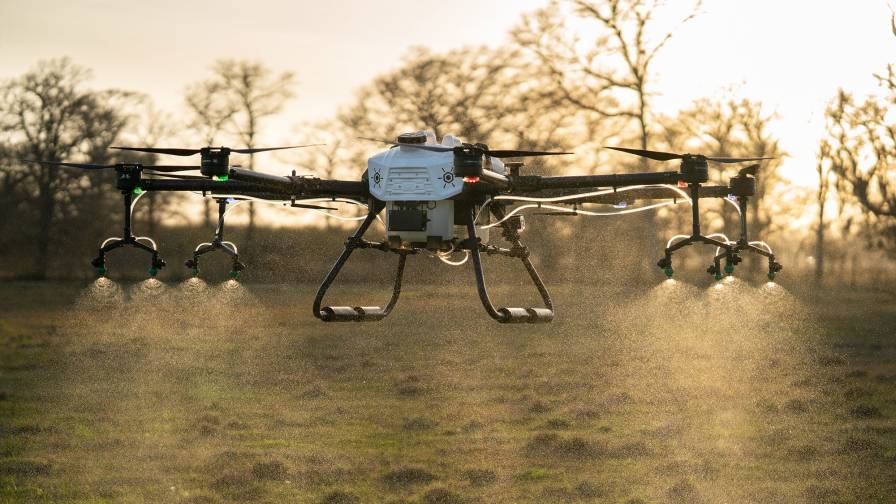Certis Biologicals escala la innovación con un propósito: ofrece productos biológicos probados que funcionan con la agricultura convencional, no en contra de ella.
Biológicos Certis Considera la innovación como algo más que una palabra de moda. Es la columna vertebral de una estrategia global diseñada para apoyar a los agricultores con soluciones eficaces y sostenibles. Eric Luce, director de la cartera de cultivos en hileras de Certis Biologicals, explica cómo la empresa se esfuerza por ofrecer a los agricultores norteamericanos productos compatibles con los programas de MIP.
ABG: Los microbios son el foco de atención de muchas empresas biológicas. ¿Cuáles son algunos de los desafíos que presentan en cuanto a la vida útil y la eficacia? ¿Qué avances observan en el mercado que harán de las formulaciones microbianas una mejor opción para los productores?
Eric Luce: Los productos biológicos generalmente se dividen en dos categorías principales: microbianos y biocontroladores. Si bien se han utilizado con éxito durante mucho tiempo en cultivos especializados, ahora estamos observando un progreso prometedor a medida que se expanden a los mercados de cultivos en hileras en Norteamérica y más allá. Hoy en día, los microbianos se aplican durante toda la temporada de cultivo, desde tratamientos de semillas hasta mezclas en surcos y aplicaciones foliares, lo que ofrece a los agricultores múltiples oportunidades para integrarlos en sus programas.
Lo que resulta especialmente alentador es el buen rendimiento de estos productos en comparación con los productos químicos convencionales. Gracias a los avances en formulación y a las rigurosas pruebas físicas y de calidad, los microbios están demostrando su capacidad para resistir condiciones adversas y mantenerse viables al mezclarse en tanque. Estas mejoras van más allá de la vida útil; ofrecen una eficacia real y medible tanto en sistemas orgánicos como convencionales. Como resultado, existe una creciente confianza en los productos biológicos como un componente fiable y estratégico para la protección moderna de cultivos.
ABG: Su empresa se centra en productos biológicos, pero muchos agricultores utilizan MIP. ¿Cómo colabora su empresa con minoristas y agricultores que desean utilizar productos químicos sintéticos junto con productos biológicos?
EL: Los productos biológicos son la solución ideal para los programas de manejo integrado de plagas (MIP), y en Certis, promovemos activamente su uso junto con los sintéticos para impulsar el éxito de los agricultores. Este enfoque permite múltiples modos de acción (MOA) en una mezcla de tanque, mejorando el rendimiento en campo y ampliando la eficacia de los productos sintéticos existentes, al ayudar a controlar los problemas de resistencia asociados con productos químicos de uso prolongado.
Los productos Certis están diseñados para integrarse perfectamente en cualquier estrategia de MIP, ayudando a reducir las poblaciones de plagas por debajo del umbral económico (ET) sin afectar a las especies beneficiosas.
Mientras que algunas empresas adoptan un enfoque amplio al mezclar múltiples cepas en una sola fórmula, Certis se centra en el rendimiento específico: seleccionando una o dos cepas probadas que controlan eficazmente la plaga objetivo y, al mismo tiempo, favorecen la salud del suelo y las plantas.
Se trata de complementar lo que ya está funcionando y construir un éxito sostenible a largo plazo en el campo.
ABG: ¿Cuáles son tres cambios que su empresa ha realizado en los últimos 10 años para ampliar la producción de productos biológicos?
EL: Uno de los principales impulsores del éxito a largo plazo de Certis ha sido nuestro compromiso con la fabricación propia. Durante más de 23 años, hemos producido la mayoría de nuestros productos biológicos en EE. UU., y ese compromiso se mantiene inalterado.
Lo que ha evolucionado es cómo escalamos la producción para satisfacer la creciente demanda. En primer lugar, al mantener la fabricación interna, mantenemos un control total sobre cada etapa del proceso, desde la fermentación hasta el envasado. Esto nos permite aplicar nuestra profunda experiencia biológica para garantizar la calidad del producto, la compatibilidad, la viabilidad de las cepas y la vida útil que los productores necesitan.
En segundo lugar, hemos mejorado continuamente nuestros sistemas y protocolos de fabricación, optimizándolos específicamente para productos biológicos, algo que las empresas que dependen de fabricantes externos a menudo tienen dificultades para hacer con tanta eficacia.
Y tercero, hemos realizado inversiones significativas para expandir nuestra capacidad de producción en Estados Unidos, agregando infraestructura para respaldar nuestra creciente presencia en América del Norte y garantizando que sigamos siendo un proveedor confiable a medida que la demanda continúa aumentando.
ABG: ¿Qué dos errores cree usted que cometen otras empresas biológicas y qué deberían hacer en su lugar?
EL: En Certis, hemos aprendido que el éxito a largo plazo comienza con hacer las cosas bien desde el principio. Un error común en esta industria es apresurarse o saltarse el riguroso proceso de aprobación regulatoria. Todos los productos del amplio portafolio de Certis están registrados por la EPA y muchos están en la lista OMRI. Lograr ese nivel de validación requiere años de investigación y datos, pero es esencial para demostrar una eficacia real y ofrecer MOA consistentes en los que los productores puedan confiar.
Otro error común es la falta de claridad sobre el rendimiento del producto. Los productores merecen saber exactamente qué puede y qué no puede hacer un producto. Nos aseguramos de que nuestros socios distribuidores y clientes productores comprendan claramente cómo funciona cada producto, qué resultados esperar y cómo contribuye a su estrategia general de retorno de la inversión (ROI).
Ese nivel de transparencia genera confianza y lealtad a largo plazo.






